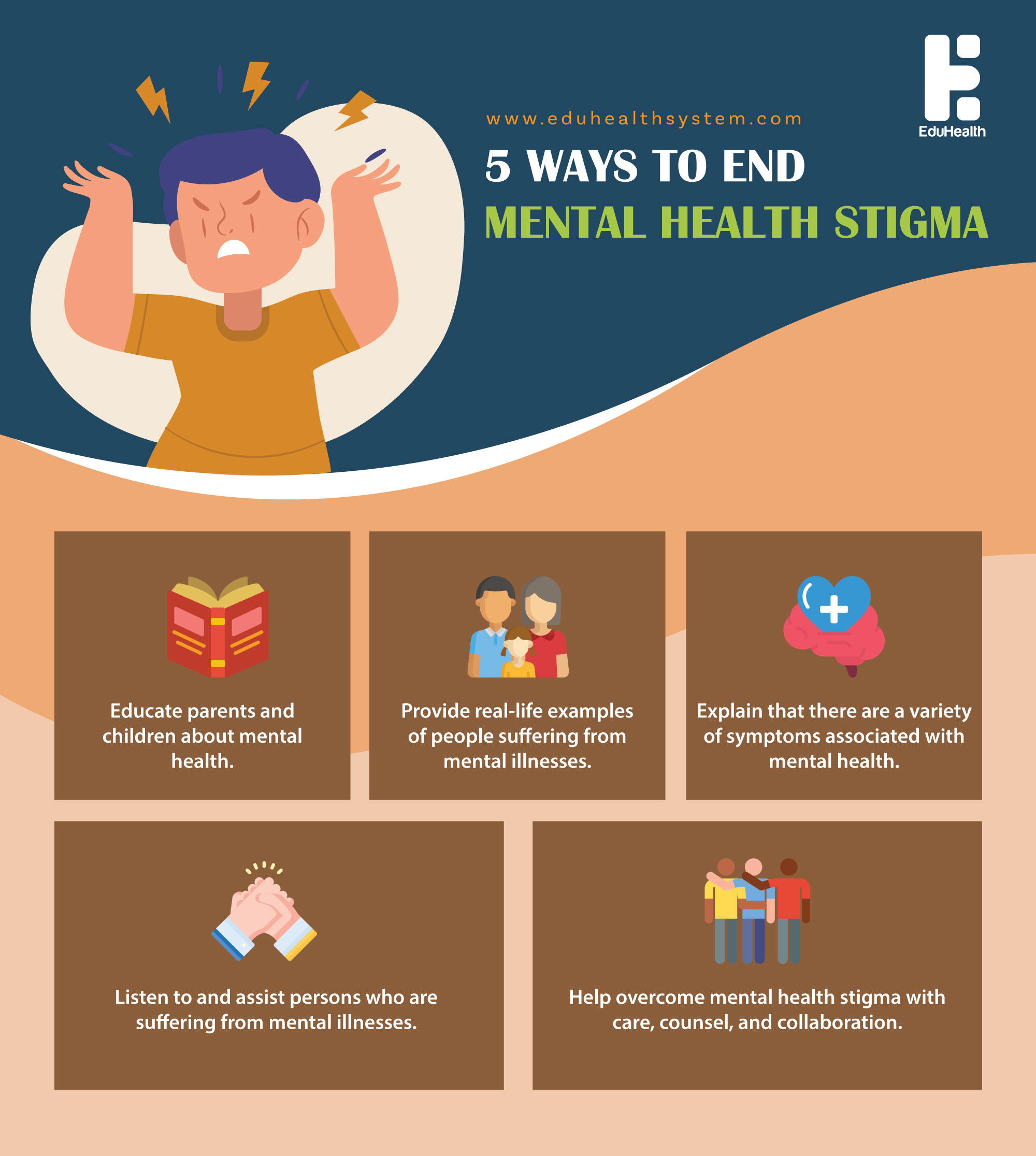The Importance of School Nurses in Students’ Mental Health
Mental health is an issue in today’s fast-paced environment, and it affects children as well as adults. Many of the key institutions of America such as (ACMH) have released a study that reveals that 1 in 5 children in America shows symptoms of diagnosable behavioral, emotional and mental health disorders. School nurses work with healthcare experts, community healthcare professionals, students, and families to identify children with mental illnesses and create a better healthcare system for those who require behavioral health services.
They are ideally suited and capable of identifying students with potential behavioral health difficulties due to their direct access to pupils. School nurses serve as advocates, facilitators, and counselors for behavioral health services both in and out of the school.
Let’s explore a little deeper by reading more about this topic.
How does it all start?
The first few minor symptoms of student mental problems are refusal to attend school as well as difficulty studying and concentrating in class. Children exhibit disruptive behavior, eating and sleeping issues. While some of these symptoms are temporary, moderate, or mild, others cause significant discomfort, confusion, and loss of control that becomes unmanageable.
Poor academic performance, a lack of enthusiasm for school, a loss of enthusiasm in homework, or poor interactions with peers or teachers can all be indicators of what the child is going through at school.
What are the mental health concerns in students?
Children, like adults, are affected by the same mental health issues and respond differently to them. For instance, when an adult is depressed, he has trouble concentrating and enjoying activities that used to engage him. If a child is going through depression, he/ she may show signs of irritability more than sadness. Behavioral issues often come out as symptoms that are manifested by children who are dealing with mental issues.
“According to the Association for Children’s Mental Health (ACMH), one in every five children and adolescents has a diagnosable emotional, behavioral, or mental health issue.”
Children are also more prone to exhibit behavioral abnormalities as a result of mental health problems. For many youngsters, this emerges as behavioral disorders such as oppositional defiant disorder (ODD), conduct disorder (CD), or obsessive-compulsive disorder (OCD).
Some of the behavioral health issues that trouble students are:
- Anxiety Disorder
- Autism Spectrum Disorder (ASD)
- Mood Disorders
- Eating Disorders
- Attention-Deficit Hyperactivity Disorder (ADHD)
Anxiety Disorders:
Anxiety is normal for just any individual, child, or adult. When it hinders the child’s ability to succeed in school or social connections, it may be an indication of something more serious. Some of the most prevalent types in children are obsessive-compulsive disorder, post-traumatic stress disorder, and social phobias.
Autism spectrum disorder:
Another difficult-to-define and understand mental health condition is an autism spectrum disorder (ASD). It is a developmental disorder that influences a child’s speech and behavior. Every kid with ASD is unique, but many have difficulty speaking and connecting with others.
ADHD:
An attention deficit hyperactivity disorder is a medical condition that affects a child’s capacity to process his or her own emotions in order to comprehend the needs and feelings of others. The major symptom is trouble concentrating; nevertheless, youngsters typically display impatient and fidgeting behavior, difficulties following directions, and frequent daydreaming.
Mood Disorders and Eating Disorders:
Eating and mood disorders can affect children of all ages and are often caused by stress or trauma. Anorexia, bulimia, and binge-eating disorder are all life-threatening eating disorders. Mood problems can lead to suicidal and even violent ideas.
What can school nurses do to help?
A crucial strategy here for a school nurse is connecting, sustaining, and engaging with parents for implementing and supporting excellent outcomes in students. Assessment and screening for students who have mental health problems is an important part of school nursing practice. School nurses continue to interact with students and their families regularly, helping to build essential and long-lasting bonds.
With strong relationships with parents and other support personnel, school nurses strive to keep parents involved in a range of activities and opportunities by addressing typical challenges and hurdles.
Screening and assessment of mental health issues at school:
Most screening procedures, at most, provide a preliminary sign that something may be wrong. When considering formal diagnosis and prescriptions on how to solve the problem, more valid data from evaluation methods are required. Many mental health problems are identified by nurses when students visit their office or while being screened for other health issues.
Such issues are also brought to the nurses’ notice during attendance and discipline reviews, assessments for special education placement, crisis interventions, or when others (staff, parents, students) express worries about a specific child. A nurse’s responsibilities also include teaching educators, classmates, parents, and others how to correctly identify and refer students. What appears to be a learning handicap, or an attention problem may be emotional; behavior problems and hyperactivity can occur as a result of learning challenges. Troubles at school may be the result of problems at home. The initial assessment report will identify the child’s trauma symptoms and causes.
School nurses collaborate with parents and the community.
School nurses can educate parents about mental health and help them treat their children. Nurses use school assessments to ask parents about their children’s health needs and interests, and how they want to take part in the school’s health activities, services, and programs.
They collaborate with school officials to develop policies and procedures to increase parent involvement in school health programs. They also create school health programs that cater to parents’ concerns, such as student wellness seminars.
Schools and nurses educate parents about mental health issues.
School nurses give parent education seminars on depression, suicide prevention, and student resiliency, either on their own or in collaboration with community organizations. They provide information to parents on the same mental health problems that they discuss with students. They provide and promote school-sponsored mental health resources in neighborhood libraries, community centers, and other public places.

How can school nurses keep parents involved?
School nurses can ask parents to participate in school decision-making through parent-teacher associations, school health councils, or other groups. They collaborate with teachers to create family-based education techniques that engage parents in health talks with their children. For example, homework assignments involving parent participation and community health promotion projects.
They can also communicate with parents via phone calls, school activities, as well as newsletters, report cards, websites, and emails.
School nurses’ best practices for dealing with students’ mental health issues
School nurses have long been important in promoting health and assisting students. They now have the chance and responsibility to perform a larger and more important role. They can assist schools in moving toward a complete integrated strategy to dealing with learning difficulties and increase efforts to support healthy growth because of this process.
Creating Framework for Supporting Student Mental Health:
The nursing process establishes a framework within which the school nurse can support student mental health. It consists of continuing assessment, the creation of a student’s individualized health care plan (IHP), the implementation of student-specific interventions (e.g., referral, education, counseling, postvention), and the evaluation of student health outcomes.
Screening and Assessment:
School nurses evaluate student home, social, cultural, educational, physical, and emotional issues to determine the next steps. Assessment and screening for mental health difficulties can enhance the efforts of other members of the school mental health team by identifying additional kids at risk and expediting support when needed. The school nurse–student interaction is especially crucial for kids who cannot explain the need to see a school counselor or are concerned about the stigma associated with mental health treatment.
Planning and Intervening:
Most school nurses are involved in some way with student mental health treatment. Planning and intervening are the following steps in the nursing process. Intervention can focus on primary, secondary, or tertiary prevention (e.g., following a treatment plan for a known mental health concern, crisis planning).
Medication administration is a crucial skill for school nurses. School nurses are also aware of the grieving process and may assist students who have suffered any type of loss. Active listening, therapeutic communication, conflict and anger management skill development, and successful coping and problem-solving are all possible intervention options.
Evaluation:
The school nurse analyzes progress toward the stated student health results as part of the nursing process to determine the effectiveness and timeliness of the intervention techniques outlined in the IHP. In reality, individual student health or school health results are reviewed constantly, with information obtained from the entire mental health team.
Mental Health Educational Program for School Nurse:
Nurse’s educational program boosts the self-efficacy of school nurses. The program comprises five main training subject components related to the setting of school nurses and student mental health issues. Each training segment is strategically attached to the provision of high-quality mental health care.
It includes the following components: (1) Identification and Screening of Mental Health Problems (including Safety Assessment and Crisis Response); (2) Mental Health Resources and Referral Mapping; (3) Common Factors; (4) Common Elements; and (5) Psychotropic Medication.
Final words to end with
School nurses are on the frontline of student health and mental health care. They are in a unique position to detect student mental health issues early on. They also have unique perspectives on mental health and related concerns that may be outside of what is shared with educators and other mental health professionals. In addition, school nurses should be proactive in reaching out to existing school teams and giving their knowledge and viewpoints.
School mental health teams are important for fostering a pleasant school climate. School nurses have an important role as the initial point of contact for pupils who have a mental health problem. They are skilled in identifying mental health issues and connecting people to extra resources. These abilities supplement the work of other school mental health specialists.








